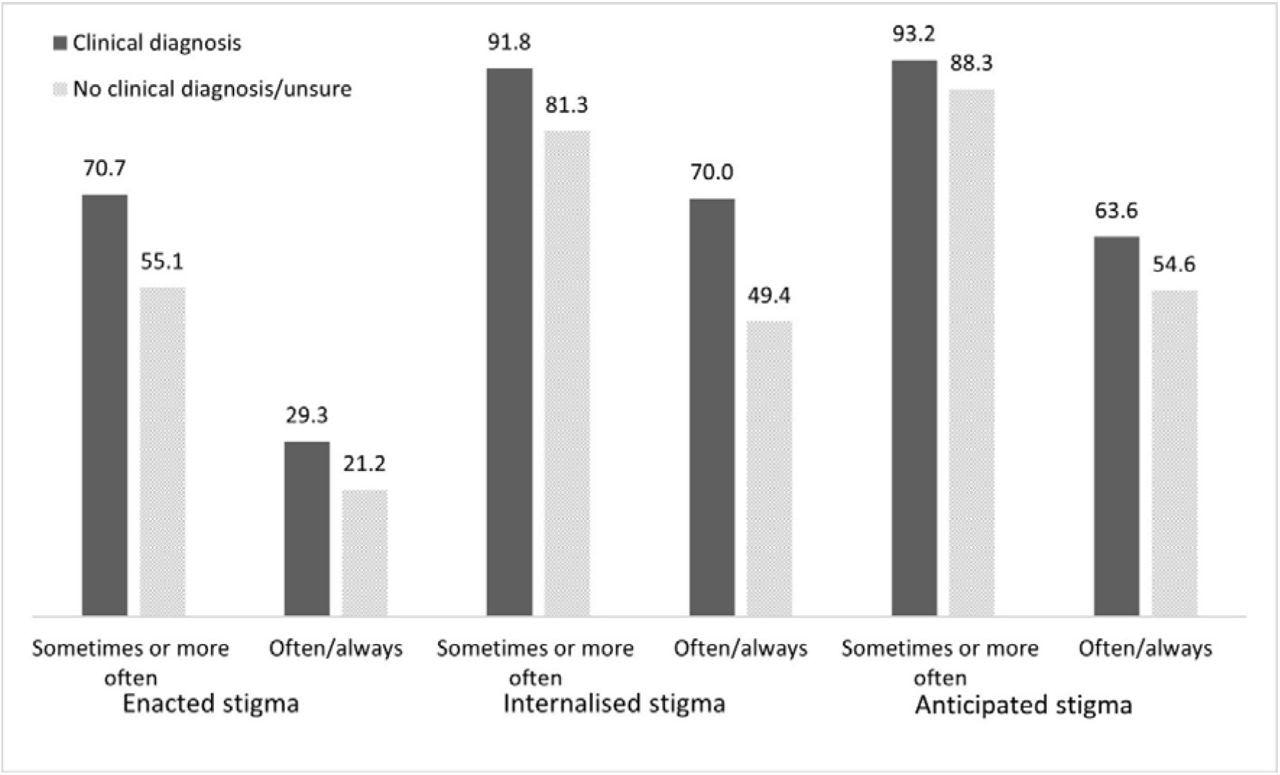The severe acute respiratory syndrome coronavirus 2 (SARS-CoV-2), which is the virus responsible for the coronavirus disease 2019 (COVID-19), has infected over 532 million worldwide and caused over 6.3 million deaths since first emerging at the end of 2019.
SARS-CoV-2 infection typically causes flu-like symptoms that persist for several weeks before resolving. However, in a small subset of individuals, these symptoms will persist beyond several weeks in a condition known as ‘long COVID’.

Study: Long Covid stigma: estimating burden and validating scale in a UK-based sample. Image Credit: Dragana Gordic / Shutterstock.com

 This news article was a review of a preliminary scientific report that had not undergone peer-review at the time of publication. Since its initial publication, the scientific report has now been peer reviewed and accepted for publication in a Scientific Journal. Links to the preliminary and peer-reviewed reports are available in the Sources section at the bottom of this article. View Sources
This news article was a review of a preliminary scientific report that had not undergone peer-review at the time of publication. Since its initial publication, the scientific report has now been peer reviewed and accepted for publication in a Scientific Journal. Links to the preliminary and peer-reviewed reports are available in the Sources section at the bottom of this article. View Sources
In a recent study published on the preprint server medRxiv*, researchers investigate the burden of long COVID stigma.
About the study
Data was acquired from a survey administered in November 2020. Convenience non-probability sampling through social media was used to recruit a representative community sample of individuals who had experienced long COVID.
All survey responses were anonymous in the initial baseline survey; however, those who were willing to be contacted for a follow-up survey in November 2021 were asked to provide their contact information.
The survey questions included demographic data, information on the individuals’ ability to work, current employment status, their pattern of illness, impact on health, long-lasting symptoms, clinical diagnosis, vaccination, and experiences of stigma. For the follow-up questionnaire, thirteen questions were asked solely on the experience of these individuals with stigma in an attempt to better understand enacted, internalized, and experienced stigma.
Follow-up questions were based on scales relating to other stigmatized conditions like the human immunodeficiency virus (HIV). Individuals were also asked to respond to questions assessing measures of depressive symptoms, as these have been associated with health-related stigma. Depressive symptoms were measured using the standard Patient Health Questionnaire.
To assess the Long Covid Stigma Scale (LCSS), confirmatory factor analysis (CFA) was used to test the three domains. Comparative Fit Index (CFI) and Tucker Lewis Index (TLI) above 0.95 were used as goodness-of-fit measures. Two prevalence estimates were calculated, with the first estimated prevalence of respondents including those who answered ‘sometimes’ to one or more questions within the overall stigma scale and each subscale.
The second estimated prevalence of respondents included individuals who answered ‘often’ or ‘always’ to one or more questions. These responses were also stratified according to whether participants reported having a clinical diagnosis or not.
Study findings
In total, 1,166 people responded to the survey, 888 of whom were from the United Kingdom and responded to the LCSS questions. About 85% of participants were female, with a mean age of about 48.
Most respondents resided in England, followed by Scotland and Wales. Over 50% of respondents reported a clinical diagnosis of long COVID.
About 61% of respondents reported being ‘very careful' of who they told of their long COVID diagnosis, whereas about 34% of respondents had regretted previously telling individuals of their long COVID diagnosis.
The CFA was run on a three-factor robust maximum likelihood (MLR) model, with enacted stigma items constrained before loading onto the enacted stigma factor. This was repeated for anticipated and internalized stigma items. Fit indices showed that the model fit the data well, with standardized factor loadings high for all three domains.
Significant latent correlations were reported between internalized and both anticipated and enacted stigma. The correlations between anticipated and enacted stigma were also correlated.
Correlations regarding the concurrent criterion validity confirmed the hypothesized relationships, with the enacted, internalized, and anticipated stigma subscales consistently positively associated with PHQ-8 score.
Two prevalence estimates were presented, with the first suggesting that over 95% of respondents had experienced overall stigma at least ‘sometimes,’ with enacted stigma reported in almost 63% of respondents.
The second and more conservative estimate suggested that almost 76% of respondents had experienced overall stigma ‘often’ or ‘always,’ whereas over 25% experienced enacted stigma. For all types of stigmas, those with a clinical diagnosis of long COVID reported a higher prevalence as compared to those without.
 Prevalence estimates of stigma among people with diagnosed and undiagnosed Long Covid
Prevalence estimates of stigma among people with diagnosed and undiagnosed Long Covid
Conclusions
The current study reports the first psychometric scale that can be used to measure stigma associated with long COVID. Herein, the researchers provide the first measurement of stigma burden within a sample of United Kingdom respondents.
The evidence suggests that the vast majority of individuals, both with and without a long COVID diagnosis, have experienced some form of stigma, with the prevalence of this stigma higher amongst those with a diagnosis. Thus, the researchers recommend the implementation of interventions to facilitate social contact between stigmatized groups, as well as advocacy and community mobilization.

 This news article was a review of a preliminary scientific report that had not undergone peer-review at the time of publication. Since its initial publication, the scientific report has now been peer reviewed and accepted for publication in a Scientific Journal. Links to the preliminary and peer-reviewed reports are available in the Sources section at the bottom of this article. View Sources
This news article was a review of a preliminary scientific report that had not undergone peer-review at the time of publication. Since its initial publication, the scientific report has now been peer reviewed and accepted for publication in a Scientific Journal. Links to the preliminary and peer-reviewed reports are available in the Sources section at the bottom of this article. View Sources
Journal references:
- Preliminary scientific report.
Pantelic, M., Ziauddeen, N., Boyes, M., et al. (2022). Long Covid stigma: estimating burden and validating scale in a UK-based sample. medRxiv. doi:10.1101/2022.05.26.22275585. https://www.medrxiv.org/content/10.1101/2022.05.26.22275585v1.
- Peer reviewed and published scientific report.
Pantelic, Marija, Nida Ziauddeen, Mark Boyes, Margaret E. O’Hara, Claire Hastie, and Nisreen A. Alwan. 2022. “Long Covid Stigma: Estimating Burden and Validating Scale in a UK-Based Sample.” Edited by Dong Keon Yon. PLOS ONE 17 (11): e0277317. https://doi.org/10.1371/journal.pone.0277317. https://journals.plos.org/plosone/article?id=10.1371/journal.pone.0277317.